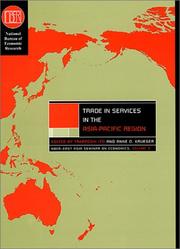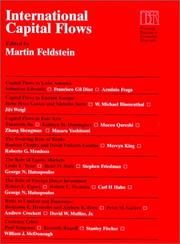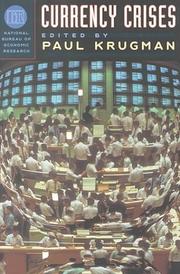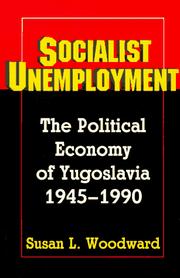| Listing 1 - 9 of 9 |
Sort by
|
Book
Abstract | Keywords | Export | Availability | Bookmark
 Loading...
Loading...Choose an application
- Reference Manager
- EndNote
- RefWorks (Direct export to RefWorks)
Book
ISBN: 1280082461 9786610082469 9264187995 9264176330 Year: 2000 Publisher: Paris : OECD Publishing,
Abstract | Keywords | Export | Availability | Bookmark
 Loading...
Loading...Choose an application
- Reference Manager
- EndNote
- RefWorks (Direct export to RefWorks)
An OECD Member country since 1996, Hungary has for the past ten years pursued its economic transition process with extensive reforms encompassing an active and liberal foreign direct investment policy. It has become one of the most attractive environments and preferred destinations for investors in Eastern Europe, with one of the highest per capita FDI inflows in the region. Privatisation has played a key role in the transformation of the Hungarian economy and in attracting FDI. Now, with this process virtually completed, Hungary aims at achieving an FDI ratio of 20 to 25 per cent of total investment by developing further greenfield projects, encouraging reinvestments and promoting small and medium-sized enterprises. This study charts the rise of FDI in Hungary and examines its role in the transition process, assessing the degree of openness of the Hungarian economy to foreign direct investors.

ISBN: 0195508580 Year: 2000 Publisher: Oxford Oxford university press
Abstract | Keywords | Export | Availability | Bookmark
 Loading...
Loading...Choose an application
- Reference Manager
- EndNote
- RefWorks (Direct export to RefWorks)
Commercial law --- Investment, Foreign --- Foreign trade regulation --- Law --- Droit commercial --- Investissements étrangers --- Commerce extérieur --- Droit --- Law and legislation --- Réglementation --- S08/0562 --- China: Law and legislation--Trade: since 1949 --- Investissements étrangers --- Commerce extérieur --- Réglementation --- Investments, Foreign --- Sales --- Purchasing
Book
Abstract | Keywords | Export | Availability | Bookmark
 Loading...
Loading...Choose an application
- Reference Manager
- EndNote
- RefWorks (Direct export to RefWorks)
Double taxation --- Investment, Foreign --- Income tax --- Export trading companies --- Double imposition --- Taxation --- Law and legislation --- Foreign income --- #RBIB:gift.2005 --- politique economique --- exportations --- fiscalite --- economisch beleid --- uitvoer --- fiscaliteit --- Investments, Foreign --- Capital exports --- Capital imports --- FDI (Foreign direct investment) --- Foreign direct investment --- Foreign investment --- Foreign investments --- International investment --- Offshore investments --- Outward investments --- Capital movements --- Investments --- Personal income tax --- Taxable income --- Taxation of income --- Direct taxation --- Internal revenue --- Progressive taxation --- Tithes --- Wages --- Export management companies --- Trading companies

ISBN: 0226386775 9786611125783 1281125784 0226386783 9780226386782 9780226386775 9781281125781 6611125787 Year: 2003 Publisher: Chicago University of Chicago Press
Abstract | Keywords | Export | Availability | Bookmark
 Loading...
Loading...Choose an application
- Reference Manager
- EndNote
- RefWorks (Direct export to RefWorks)
In recent years the tremendous growth of the service sector-including international trade in services-has outstripped that of manufacturing in many industrialized nations. As the importance of services has grown, economists have begun to focus on policy issues raised by them and have tried to understand what, if any, differences there are between production and delivery of goods and services. This volume is the first book-length attempt to analyze trade in services in the Asia-Pacific region. Contributors provide overviews of basic issues involved in studying the service sector; investigate the impact of increasing trade in services on the economies of Taiwan, Korea, and Hong Kong; present detailed analyses of specific service sectors (telecommunications, financial services, international tourism, and accounting); and extend our understanding of trade in services beyond the usual concept (measured in balance of payment statistics) to include indirect services and services undertaken abroad by subsidiaries and affiliates.
Asia. --- Banks and banking, International. --- Pacific Region. --- Service industries. --- Telecommunication. --- Service industries --- Banks and banking, International --- Telecommunication --- Industries --- Business & Economics --- Electric communication --- Mass communication --- Telecom --- Telecommunication industry --- Telecommunications --- International banking --- Offshore banking (Finance) --- Transnational banking --- Communication --- Information theory --- Telecommuting --- Financial institutions, International --- International finance --- E-books --- trade, asia, pacific rim, service sector, services, international, policy, business, economics, affiliates, subsidiaries, indirect, balance of payment, accounting, tourism, hospitality, finance, telecommunications, hong kong, korea, taiwan, nonfiction, economy, gats, government, regulation, liberalization, reform, productivity, japan, investment, foreign, harmonization, globalization.
Book
Abstract | Keywords | Export | Availability | Bookmark
 Loading...
Loading...Choose an application
- Reference Manager
- EndNote
- RefWorks (Direct export to RefWorks)
International business enterprises --- -International business enterprises --- -Investment, Foreign --- Banks and banking,International --- Debts, External --- -International economic relations --- Investments, Foreign --- Capital exports --- Capital imports --- FDI (Foreign direct investment) --- Foreign direct investment --- Foreign investment --- Foreign investments --- International investment --- Offshore investments --- Outward investments --- Capital movements --- Investments --- Economic policy, Foreign --- Economic relations, Foreign --- Economics, International --- Foreign economic policy --- Foreign economic relations --- Interdependence of nations --- International economic policy --- International economics --- New international economic order --- Economic policy --- International relations --- Economic sanctions --- Debts, Foreign --- Debts, International --- External debts --- Foreign debts --- International debts --- Debt --- International finance --- Business enterprises, International --- Corporations, International --- Global corporations --- International corporations --- MNEs (International business enterprises) --- Multinational corporations --- Multinational enterprises --- Transnational corporations --- Business enterprises --- Corporations --- Joint ventures --- Banks and banking,International. --- International business enterprises. --- International economic relations. --- Investments, Foreign. --- International economic relations

ISBN: 0226241033 0226241041 9786611223380 1281223387 0226241807 9780226241807 9780226241043 9780226241036 9780226241036 Year: 1999 Volume: *1 Publisher: Chicago University of Chicago Press
Abstract | Keywords | Export | Availability | Bookmark
 Loading...
Loading...Choose an application
- Reference Manager
- EndNote
- RefWorks (Direct export to RefWorks)
Recent changes in technology, along with the opening up of many regions previously closed to investment, have led to explosive growth in the international movement of capital. Flows from foreign direct investment and debt and equity financing can bring countries substantial gains by augmenting local savings and by improving technology and incentives. Investing companies acquire market access, lower cost inputs, and opportunities for profitable introductions of production methods in the countries where they invest. But, as was underscored recently by the economic and financial crises in several Asian countries, capital flows can also bring risks. Although there is no simple explanation of the currency crisis in Asia, it is clear that fixed exchange rates and chronic deficits increased the likelihood of a breakdown. Similarly, during the 1970's, the United States and other industrial countries loaned OPEC surpluses to borrowers in Latin America. But when the U.S. Federal Reserve raised interest rates to control soaring inflation, the result was a widespread debt moratorium in Latin America as many countries throughout the region struggled to pay the high interest on their foreign loans. International Capital Flows contains recent work by eminent scholars and practitioners on the experience of capital flows to Latin America, Asia, and eastern Europe. These papers discuss the role of banks, equity markets, and foreign direct investment in international capital flows, and the risks that investors and others face with these transactions. By focusing on capital flows' productivity and determinants, and the policy issues they raise, this collection is a valuable resource for economists, policymakers, and financial market participants.
AA / International- internationaal --- 333.602 --- 382.242.0 --- 333.481 --- NBB congres --- Capital movements --- International finance --- 332.042 --- International monetary system --- International money --- Finance --- International economic relations --- Capital flight --- Capital flows --- Capital inflow --- Capital outflow --- Flight of capital --- Flow of capital --- Movements of capital --- Balance of payments --- Foreign exchange --- Activiteiten en evolutie van de financiële markten. --- Balans van het kapitaalverkeer: algemeenheden. --- Monetaire crisissen, hervormingen, saneringen en stabilisering. --- Conferences - Meetings --- Capital movements. --- Banks and banking, International. --- International banking --- Offshore banking (Finance) --- Transnational banking --- Financial institutions, International --- E-books --- Monetaire crisissen, hervormingen, saneringen en stabilisering --- Activiteiten en evolutie van de financiële markten --- Balans van het kapitaalverkeer: algemeenheden --- Congresses --- capitalism, money, finance, financial, economy, economics, academic, scholarly, research, global, technology, technological, investor, investment, foreign, direct, debt, equity, financing, gains, savings, investing, market, cost, profit, production, economic, crisis, asia, asian, eastern world, currency, united states, opec, surplus, borrower.

ISBN: 0226454622 9786611223748 1281223743 0226454649 9780226454641 9780226454627 9781281223746 9780226454627 6611223746 Year: 2000 Publisher: Chicago University of Chicago Press
Abstract | Keywords | Export | Availability | Bookmark
 Loading...
Loading...Choose an application
- Reference Manager
- EndNote
- RefWorks (Direct export to RefWorks)
There is no universally accepted definition of a currency crisis, but most would agree that they all involve one key element: investors fleeing a currency en masse out of fear that it might be devalued, in turn fueling the very devaluation they anticipated. Although such crises-the Latin American debt crisis of the 1980's, the speculations on European currencies in the early 1990's, and the ensuing Mexican, South American, and Asian crises-have played a central role in world affairs and continue to occur at an alarming rate, many questions about their causes and effects remain to be answered. In this wide-ranging volume, some of the best minds in economics focus on the historical and theoretical aspects of currency crises to investigate three fundamental issues: What drives currency crises? How should government behavior be modeled? And what are the actual consequences to the real economy? Reflecting the latest thinking on the subject, this offering from the NBER will serve as a useful basis for further debate on the theory and practice of speculative attacks, as well as a valuable resource as new crises loom.
Currency question --- Foreign exchange --- Financial crises --- Question monétaire --- Change --- Crises financières --- History --- Histoire --- Currency question. --- Financial crises. --- Foreign exchange. --- Business. --- Finance --- Business & Economics --- International Finance --- -Foreign exchange --- -Financial crises --- -332.45 --- Crashes, Financial --- Crises, Financial --- Financial crashes --- Financial panics --- Panics (Finance) --- Stock exchange crashes --- Stock market panics --- Crises --- Business cycles --- Cambistry --- Currency exchange --- Exchange, Foreign --- Foreign currency --- Foreign exchange problem --- Foreign money --- Forex --- FX (Finance) --- International exchange --- International finance --- Currency crises --- Fiat money --- Free coinage --- Monetary question --- Scrip --- Finance, Public --- Legal tender --- Money --- -History --- -Currency question --- -Currency question. --- Question monétaire --- Crises financières --- E-books --- currency, monetary policy, exchange rates, devaluation, investment, foreign markets, economics, nonfiction, latin america, europe, mexico, asia, speculative attacks, unemployment, private sector, macroeconomics, erm, peso, euro, balance of payments, emerging market, sovereign governments, capital, finance, economy, trade, profit, business.

ISBN: 0691086451 0691219656 Year: 1995 Publisher: Princeton, N.J. : Princeton University Press,
Abstract | Keywords | Export | Availability | Bookmark
 Loading...
Loading...Choose an application
- Reference Manager
- EndNote
- RefWorks (Direct export to RefWorks)
In the first political analysis of unemployment in a socialist country, Susan Woodward argues that the bloody conflicts that are destroying Yugoslavia stem not so much from ancient ethnic hatreds as from the political and social divisions created by a failed socialist program to prevent capitalist joblessness. Under Communism the concept of socialist unemployment was considered an oxymoron; when it appeared in postwar Yugoslavia, it was dismissed as illusory or as a transitory consequence of Yugoslavia's unorthodox experiments with worker-managed firms. In Woodward's view, however, it was only a matter of time before countries in the former Soviet bloc caught up with Yugoslavia, confronting the same unintended consequences of economic reforms required to bring socialist states into the world economy. By 1985, Yugoslavia's unemployment rate had risen to 15 percent. How was it that a labor-oriented government managed to tolerate so clear a violation of the socialist commitment to full employment? Proposing a politically based model to explain this paradox, Woodward analyzes the ideology of economic growth, and shows that international constraints, rather than organized political pressures, defined government policy. She argues that unemployment became politically "invisible," owing to its redefinition in terms of guaranteed subsistence and political exclusion, with the result that it corrupted and ultimately dissolved the authority of all political institutions. Forced to balance domestic policies aimed at sustaining minimum standards of living and achieving productivity growth against the conflicting demands of the world economy and national security, the leadership inadvertently recreated the social relations of agrarian communities within a postindustrial society.
Full employment policies --- Socialism --- Unemployment --- Politique de plein emploi --- Socialisme --- Chômage --- Yugoslavia --- Yougoslavie --- Economic conditions --- Conditions économiques --- Economic policy --- Employment stabilization --- Joblessness --- Employment (Economic theory) --- Labor supply --- Manpower policy --- Underemployment --- Austria. --- Austromarxism. --- Bolcic, Silvano. --- Bukharin, Nikolai. --- Cannon, Cavendish. --- Comisso, Ellen. --- Connor, Walker. --- Dalmatia. --- Djilas, Milovan. --- Estrin, Saul. --- Gapinski, James. --- Gligorov, Kiro. --- Great Britain. --- Green Plan (1973). --- Horvat, Branko. --- Keynesianism. --- Krstulovic, Vicko. --- Pijade, Mosa. --- Planinc, Milka. --- administrative period. --- budget deficits. --- deficits, domestic. --- economic coercion concept. --- export promotion. --- farm collectives. --- health insurance. --- housing shortage. --- investment, foreign. --- job security. --- joint ventures. --- labor markets, informal. --- mass participation concept. --- national independence. --- overemployment. --- rationing. --- remittances. --- security zones. --- Wirtschaftspolitik. --- Arbeitslosigkeit. --- Planeconomie. --- Werkgelegenheidsbeleid. --- Werkloosheid. --- Unemployment. --- Socialism. --- Full employment policies. --- Economic history. --- Jugoslawien. --- Yugoslavia. --- History, Economic --- Economics --- Marxism --- Social democracy --- Socialist movements --- Collectivism --- Anarchism --- Communism --- Critical theory --- Serbia and Montenegro --- Korolevstvo SKhS --- Korolevstvo serbov, khorvatov i sloventsev --- I︠U︡hoslavii︠a︡ --- Jugoslavija --- Federativna Narodna Republika Jugoslavija --- Kraljevina Srba, Hrvata i Slovenaca --- Kingdom of Serbs, Croats, and Slovenes --- Socijalistička Federativna Republika Jugoslavija --- SFRJ --- Socjalistyczna Federacyjna Republika Jugosłavii --- Jugoszláv Szocialista Szövetségi Köztársaság --- SFRI︠U︡ --- Socialist Federal Republic of Yugoslavia --- Nan-ssu-la-fu --- Nansilafu --- Sot︠s︡ialisticheskai︠a︡ Federativnai︠a︡ Respublika I︠U︡goslavii︠a︡ --- Federatyvna Narodna Respublika I︠U︡hoslavii︠a︡ --- FNRI︠U︡ --- I︠U︡goslavii︠a︡ --- Yugosŭllabia --- Yugoslavyah --- Iugoslavia --- Federal People's Republic of Yugoslavia --- République fédérative populaire de Yougoslavie --- République socialiste fédérative de Yougoslavie --- RSFY --- FNRJ --- Federal Republic of Yugoslavia --- Sot︠s︡ialistychna Federatyvna Respublika I︠U︡hoslavii︠a︡ --- Savezna Republika Jugoslavija --- Soi︠u︡zna Respublika I︠U︡hoslavii︠a︡ --- SRI︠U︡ --- Jugoslavia --- FR Yugoslavia --- Kraljevina Jugoslavija --- Kingdom of Yugoslavia --- FLRJ --- Federativna ljudska republika Jugoslavija --- Jugoszlávia --- Erwerbslosigkeit --- Arbeitsloser --- Unterbeschäftigung --- Volkswirtschaftspolitik --- Allgemeine Wirtschaftspolitik --- Politik --- Croats, and Slovenes --- Federatyvna Narodna Respublika I͡Uhoslavii͡ --- FNRI͡ --- Hrvata i Slovenaca --- I͡Ugoslavii͡ --- I͡Uhoslavii͡ --- khorvatov i sloventsev --- SFRI͡ --- Soi͡uzna Respublika I͡Uhoslavii͡ --- Sot͡sialisticheskai͡a Federativnai͡a Respublika I͡Ugoslavii͡ --- Sot͡sialistychna Federatyvna Respublika I͡Uhoslavii͡ --- SRI͡ --- FNR Jugoslavija --- SFRJU --- SFR Jugoslavija --- FPR Yugoslavia --- FPRY --- SFR Yugoslavia --- Föderative Volksrepublik Jugoslawien --- FVRJ --- Yugoslavija --- République Socialiste Fédérative de Yougoslavie --- Socialistična Federativna Republika Jugoslavija --- Socialističeskaja Federativnaja Respublika Jugoslavija --- Yugoslavıya --- Demokratska Federativna Jugoslavija --- Federal Republic of Yugoslavija --- Sojuznaja Respublika Jugoslavii --- Socijalistička Federativna Republika Jugoslavija --- Sozialistische Föderative Republik Jugoslawien --- Königreich Jugoslawien --- Jugoslawen --- Föderative Republik Jugoslawien --- 1929-1992 --- SHS-Staat
| Listing 1 - 9 of 9 |
Sort by
|

 Search
Search Feedback
Feedback About UniCat
About UniCat  Help
Help News
News